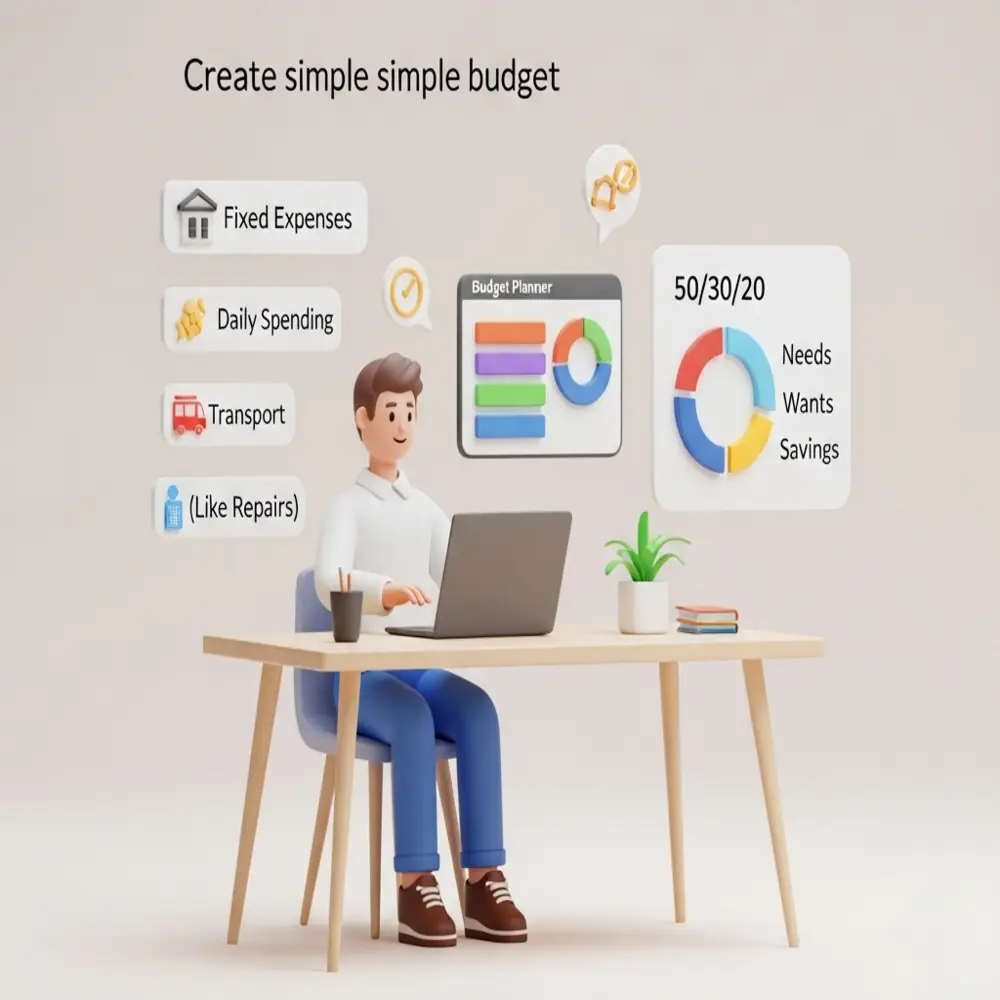Gig work has changed the way people earn money. Whether you’re delivering food, driving a ride share, freelancing online, or working on short term contracts, you probably enjoy the freedom that comes with flexible hours. But this freedom also brings challenges especially when it comes to managing money. Unlike traditional jobs, gig work often means no fixed salary, no retirement plan, and no employer provided benefits.
Understand Your Income Flow
One of the first things to understand as a gig worker is that your income may change every week or month. You might earn a lot in December and half that in January. This irregular income can make it hard to plan your spending or save money. To stay in control, start by tracking how much you earn each week or month. Use a simple app, a spreadsheet, or even a notebook. After a few months, you’ll notice patterns. Maybe weekends bring more income, or maybe the holiday season boosts your freelance work. Knowing this helps you plan ahead.
It’s also smart to calculate your average monthly income. Once you know your average, treat that number as your “budget base” and try to keep your spending within it, even in months when you earn more.
Create a Simple Budget

A budget is not about restricting your fun it’s about giving every dollar a job. A basic budget gives you a clear picture of your spending and helps you stay in charge of your money.
Here’s how you can start:
- List your fixed expenses like rent, internet, phone bills, and loan payments.
- Include your day to day costs like food, travel, and dining in your spending plan.
- Set aside money for savings and emergencies.
- Leave room for irregular costs like medical visits, equipment repairs, or seasonal items.
A 50/30/20 budget rule can be a useful start:
- 50% of your income for needs (rent, food)
- 30% for wants (shopping, entertainment)
- 20% for savings or debt repayment
As a gig worker, adjust the percentages based on your income cycle. When you earn more, put extra toward savings.
Build an Emergency Fund
Imagine you lose your biggest client or get sick and can’t work for a week. What happens to your bills? That’s where an emergency fund saves the day. This fund is just money you keep aside to use only in real emergencies. Start small. Try to save enough to cover at least one month of expenses, then work toward building up to three to six months. Keep this money in a separate account so you won’t be tempted to spend it casually.
Even saving $20 or $50 from each gig adds up over time. Make it a habit to treat your emergency fund like any other bill you pay into it regularly.

Separate Business and Personal Money
When all your payments come into your personal account, it’s easy to lose track of what money is for business and what’s for you. Set up a separate bank account to keep your gig earnings and work costs apart from personal money. This keeps things clearer when it’s time to pay taxes or see how much you’ve actually earned.
Use this business account for:
- Receiving client or platform payments
- Paying for tools, apps, fuel, or equipment
- Transferring your own “salary” into your personal account
Having separate accounts also makes you feel more professional, and it can reduce stress when checking balances.
Set Aside Money for Taxes
One of the biggest surprises for many new gig workers is the tax bill. Unlike traditional jobs where taxes are taken out automatically, gig workers usually get paid the full amount and are responsible for handling taxes themselves. To avoid a shock at tax time, try to save about 20% to 30% of your income for taxes. This depends on where you live and how much you earn, so talk to a tax advisor if needed. Keep this money in a separate account so it doesn’t mix with your spending cash. If your income is steady, it’s smart to pay taxes every few months instead of facing a big bill at year end. This can make it easier to handle.
Save for Retirement Even Without a Boss
Just because your work doesn’t offer a retirement plan doesn’t mean you should skip it. Saving early helps your money grow faster over time because of compounding. There are many retirement options for gig workers, depending on where you live:
- Individual Retirement Accounts (IRAs)
- Roth IRAs
- Solo 401(k) plans (for self employed people)
You don’t have to start big. Even putting $50 a month toward retirement builds a habit that grows over time. Many apps and financial services now make this easy.
Protect Yourself with Insurance
Traditional jobs often provide benefits like health insurance or disability coverage. Gig workers have to arrange this themselves.
Here are a few types of insurance you might consider:
- Health insurance: To cover doctor visits, medicine, and hospital bills
- Disability insurance: In case you’re unable to work for a while
- Liability insurance: If you’re a freelancer or do work where mistakes could cost money
- Equipment insurance: If you rely on a laptop, camera, bike, or car
Look for affordable plans or gig worker group policies. Paying for insurance might feel like a burden now, but it can save you thousands later.
Automate Where You Can
Managing money takes time, and when you’re juggling multiple gigs, it’s easy to forget. Letting apps or bank tools handle parts of your money routine can make life easier and cut down worry.
You can:
- Set automatic transfers to savings or emergency funds
- Use apps that round up your purchases and save the spare change
- Schedule bill payments to avoid late fees
- Set tax reminders on your phone or calendar
- Automation turns good habits into a routine, which helps you stay on track even during your busiest weeks.
Think Long Term: Not Just Day to Day
Gig work can sometimes feel like living paycheck to paycheck, but try to take the long view. Make plans beyond just this month. Where do you want to be in one year, three years, or ten years? Your financial choices now shape your future.
Ask yourself:
- Do you want to buy a house?
- Will you need money for education or a big trip?
- Do you plan to expand your freelance services?
- Can you invest a little money to grow over time?
Having goals helps you stay motivated to save and spend wisely. It also makes the day to day grind feel more meaningful.

Use Money Management Apps
There are many apps designed to help freelancers and gig workers with money:
- Mint: Tracks your spending and creates simple budgets
- You Need A Budget (YNAB): Helps you plan where every dollar goes
- QuickBooks Self-Employed: Great for tracking expenses and mileage
- Wave: Free invoicing and accounting tool for freelancers
- Cleo or Emma: Chat based budgeting and financial advice
These tools can take some of the stress out of managing money and help you focus more on your actual work.
Stay Informed and Keep Learning
The financial world changes often new rules, tools, or opportunities pop up all the time. Spend time each month learning something new about money. Read simple articles, watch videos, or listen to podcasts about budgeting, investing, or taxes. You can also talk to other gig workers. Ask how they manage their money or what tools they use. Sharing tips helps everyone grow.
Final Thoughts
Being your own boss as a gig worker can be exciting, but it also means taking full responsibility for your financial life. With a bit of planning and the right habits, you can not only survive but thrive in the gig economy. Track your income, build a budget, save regularly, protect yourself with insurance, and look ahead to your future. Money doesn’t have to be a mystery even when it’s not coming in a steady paycheck. Use these smart tips, and you’ll feel more confident, secure, and ready to make the most of every gig that comes your way.



